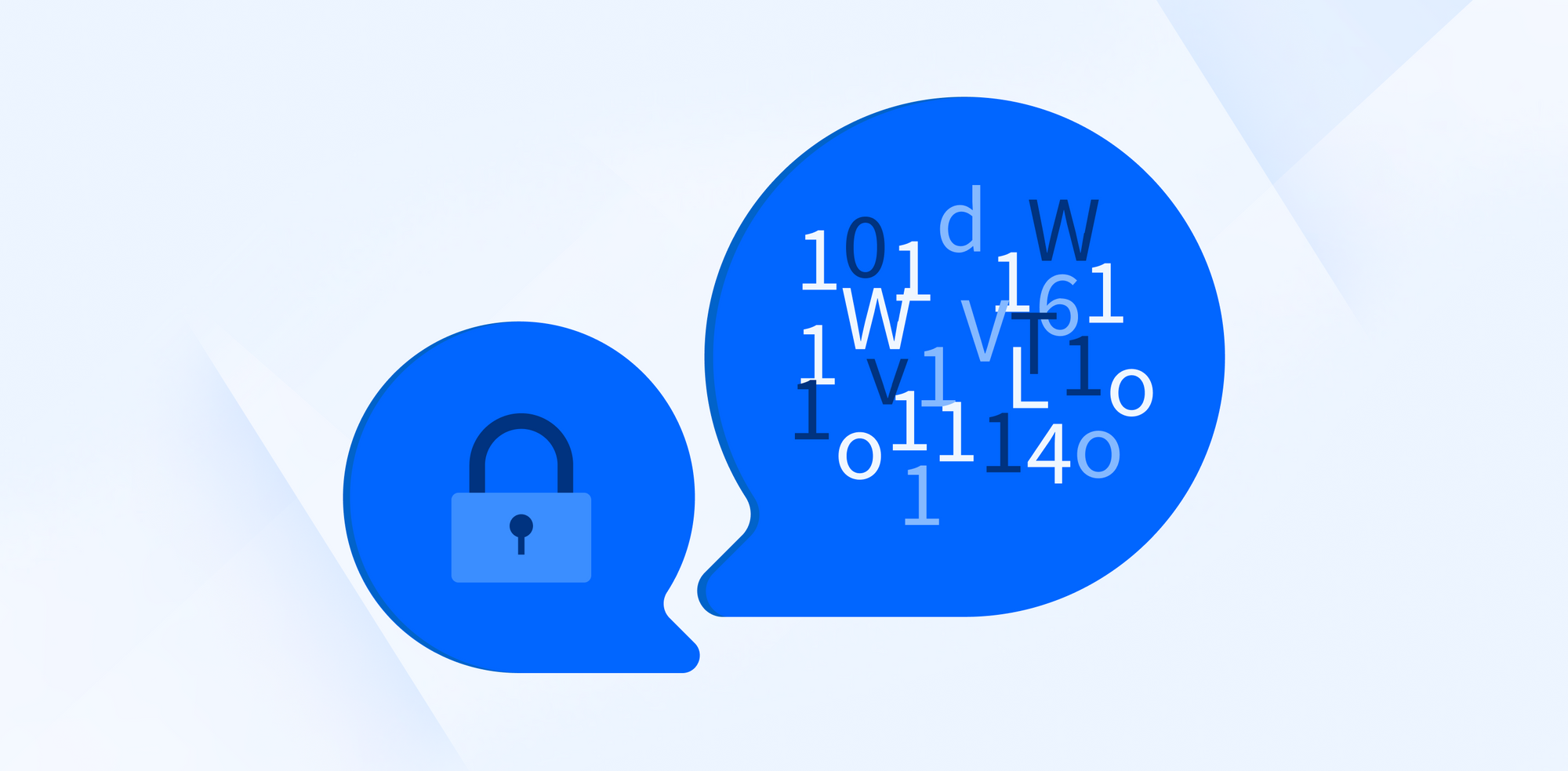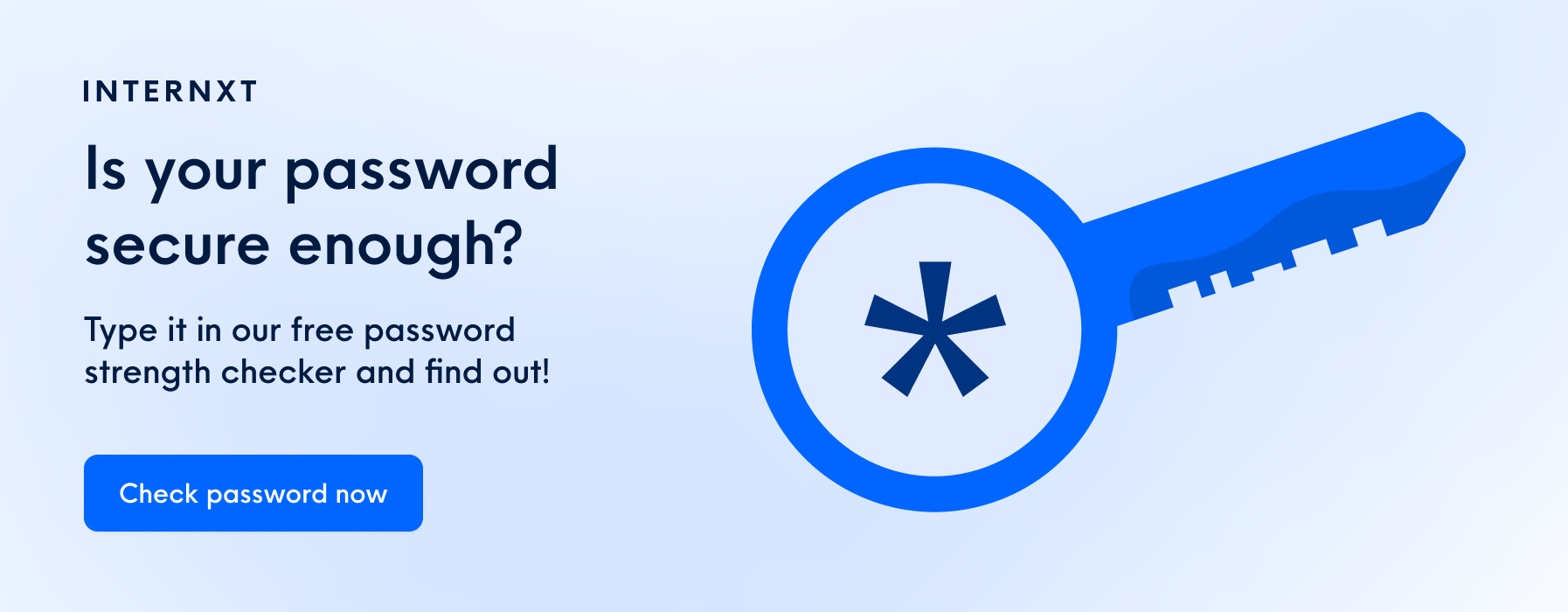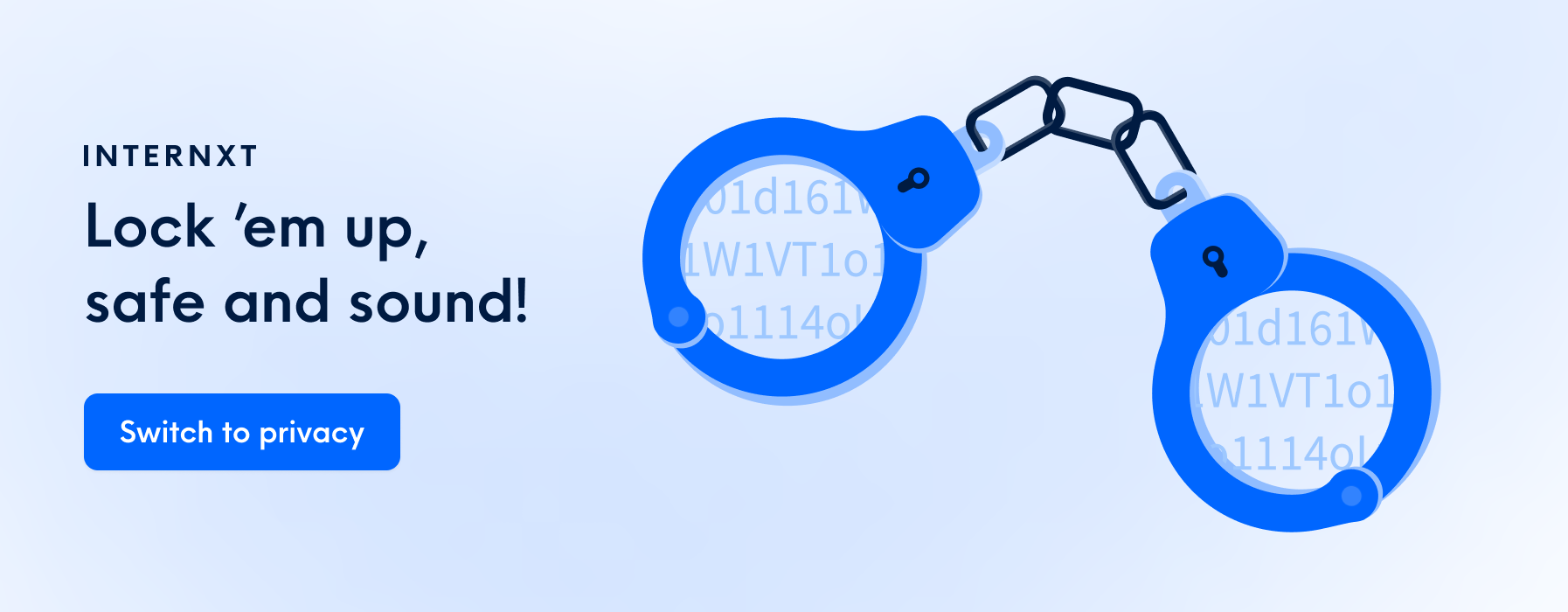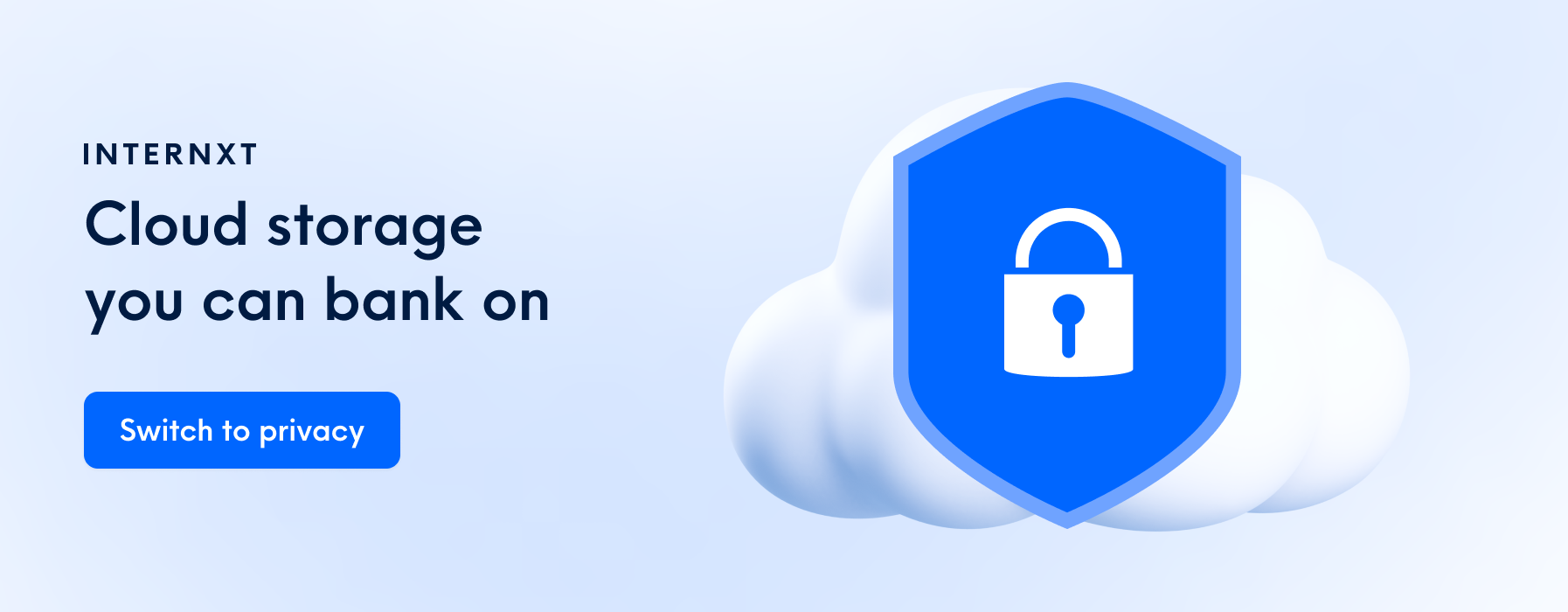How End-to-End Encryption in Messaging Apps Benefits Your Business

Encryption means converting data (in the form of plain text) into a code that is unreadable by humans to prevent unauthorized access.
There are many types of encryption, and they include encryption in transit, encryption at rest, and end-to-end encryption. Among them, end-to-end encryption is probably the best for communication services. So, if you're a business sending sensitive and receiving sensitive information through messaging apps, you should look for this type of technology in the platforms you use.
Not yet convinced? Read on to learn how messaging apps' end-to-end encryption benefits your business. But first…
What Is End-to-End Data Encryption?
End-to-end encryption is the process of encrypting data in your devices into text that does not make any sense to the naked eye (for example, *G5!v8KBekm). Such encrypted data will be transferred to a designated recipient with the cryptographic keys required to decode the data
This type of encryption is often mistaken for the traditional encryption-in-transit method. But with encryption in transit, only when the data goes through the Internet Service Provider (ISP) or app servers will it be decrypted. For this reason, third parties like ISP or app providers can read data without your consent. In worst-case scenarios, hackers can exploit some security holes in these servers to access or modify data illegally.
Meanwhile, end-to-end encryption only allows senders and authorized recipients to decrypt data. No third party (e.g., ISP or app providers) can intercept and read the data unless they have the required decryption keys. In other words, end-to-end encryption better protects your data from unauthorized users.
What encrypted messaging app should you use?
Wire
Many messaging apps like Signal or WhatsApp use end-to-end encryption to preserve data privacy. So when a person sends a file, it will be end-to-end encrypted, and only the target receiver can read its original content.
Wire is a secure messaging and collaboration platform designed for enterprises, governments, and organizations where confidentiality and compliance are critical. Unlike most consumer messengers, Wire was built with enterprise-grade security and sovereignty in mind.
The app uses end-to-end encryption by default for all calls, messages, and file transfers. It is also one of the first platforms to implement the Messaging Layer Security (MLS) protocol, a next-generation encryption standard backed by the IETF. MLS enables highly scalable and secure group communication, something traditional messengers struggle with at enterprise scale.
Wire is fully open source, meaning its code can be audited by anyone to ensure transparency and trust. It has also undergone independent security audits and carries certifications such as ISO 27001 and ISO 27701, making it suitable for regulated industries.
A unique aspect of Wire is its strong commitment to data sovereignty. Organizations can choose to deploy Wire in the cloud, in a private cloud, or fully on-premises, giving them complete control over where their data is stored and who can access it. This is particularly important for European enterprises and public sector institutions seeking alternatives to US-based platforms.
For privacy, Wire minimizes metadata and operates with a zero-knowledge architecture, meaning even Wire itself cannot access the content of conversations. Advanced controls, such as ephemeral messages, device management, and legal hold, make it a comprehensive solution for both secure collaboration and compliance needs.
Wire also includes productivity features beyond messaging: voice and video conferencing, secure file sharing, and guest rooms that allow external partners to join securely without exposing sensitive internal data.
While consumer apps like Signal or WhatsApp are popular for private use, Wire is specifically designed for enterprise and mission-critical communication. It powers secure collaboration at organizations such as EY, BMW, and the German government, proving its ability to meet the highest standards of security, compliance, and usability.
5 Benefits of End-to-End Data Encryption in Messaging Apps
End-to-end encryption helps strengthen the security of messaging apps. It helps prevent sensitive data shared on the platform from falling into the wrong hands. Here are specific ways messaging apps' end-to-end encryption benefits you as a business.
If you work from home, then using secure messaging apps is one of the many tips for hybrid workers to keep business information safe and avoid data leaks.

1. Protects User Privacy
According to a McKinsey Report, 71% of consumers would quit doing business with a company if it revealed private data without their consent. This just proves that users are becoming more aware of each company's responsibility to ensure the personal data they share is kept confidential.
In other words, if your company uses a secure platform to improve the security of data flows, both your customers and employees will appreciate you. You'll stand out among competitors in the product, services, and job markets.
Today, messaging apps offer security features like spam blockers or PIN codes to stop spam texts, control access, secure data sharing, and more. Many of them (e.g., Signal, Wickr, or Threema) use advanced technology like end-to-end encryption to prevent any unwanted access to confidential data.
Platforms like WhatsApp are a prime target for scams, so your business should be aware of the most popular WhatsApp scams to avoid personal information or money being stolen.
These apps allow users to make encrypted video calls, secret chats, or self-destroying messages. Thus, only participants in chats or video calls can see shared files or data.
You can use any of these apps to communicate with customers or prospects, either for customer service or sales. To show how much you value their privacy, you can give them the assurance at the start of every conversation that the personal data they provide is for both of your eyes only.
2. Helps Maintain Data Integrity
One of the most important end-to-end encryption benefits is that it helps preserve data integrity.
Data integrity means keeping data accurate and consistent during its lifetime. Data integrity ensures data will be recorded, retrieved, or delivered as intended. Thus, with data integrity in place, users can expect no part of the data will be altered without the agreement of authorized parties.
In the context of communication platforms, data integrity means that the data coming to the receivers remains intact in terms of structure and content. As we mentioned earlier, end-to-end encryption limits outside access to encrypted data. As unauthorized users have no keys to decipher data in transit, they cannot manipulate data or stop its delivery to endpoint devices.
Apart from end-to-end encryption, messaging apps also use another advanced tech like multi-factor authentication, forward secrecy, or trust computing base (TCB) to better protect your keys at endpoints. This is important since you can still face data alteration if your endpoints have been compromised.
Data integrity is critical to consumers. Imagine this scenario. A consumer asks you for help registering for your free service. They give you their name, say, Anna Brown. Let's assume the data was altered and what you see from your end is Ana Brown. This is what you use to create the customer's account.
Fast-forward to when the customer tries to access that new account using their real name. The result, of course, is that they won't be able to access it. In the end, you can expect an irked customer who might no longer do business with you.
Data integrity is critical in office and business communication, too. You're expected to make data-based decisions. If critical data has been altered, you might make the wrong call that can affect the business and workplace negatively as a whole.

3. Makes Exchanges of Sensitive Data Possible
Highly-sensitive data is valuable, not just for the user but for the company, too. Companies can use the data for advertising campaigns on social media. Based on collected data, companies can direct targeted adverts or content to the most susceptible audience with consent.
The European Commission defines highly-sensitive data as:
- Private data showing ethnic or racial origin, religious beliefs, and political opinions;
- Personally identifiable information (PII), typically including biometrics and driving license numbers;
- Records related to personal finance and health.
End-to-end messaging apps encrypt this sensitive data from being leaked and falling into the wrong hands.
Meta, for example, applies end-to-end encryption across Instagram and Facebook Messenger to further protect sensitive data shared in messages and calls. It also works under data protection laws. So, companies using Facebook or Instagram marketing with Meta must also follow data protection regulations.
But for industries like public administration and healthcare, conventional messaging apps like Facebook Messenger are not secure enough. These sectors face data loss and attacks more often than others. As a result, they use more secure messaging apps like Siilo to share highly-sensitive data without fear of data leakage or being snooped on.
These apps don't just integrate end-to-end encryption to protect highly-sensitive data. They also follow privacy acts like the Health Insurance Portability and Accountability Act (HIPAA) or the General Data Protection Regulation (GDPR).
4. Helps Protect Business' Reputation
A successful hack can negatively affect your business reputation.
Users don't like data breaches. Remember the Whisper data breach? In 2020, some independent researchers discovered a previous data leakage from the app that packages itself as a secret-sharing platform due to the lack of password protection. You can imagine the backlash that ensued afterward. The incident pushed the app's popularity down on the iPhone app store. Up to now, the app hasn't recovered from the PR crisis.
Data breaches can cost you time, effort, and money to handle. Data loss scandals can make customers think that you are careless in securing user and business data. The result is that they no longer do business with you.
That's why it's crucial for businesses to use robust encryption systems in messaging apps. Messaging apps' end-to-end encryption benefits your business by ensuring you don't become a victim of data breaches.
5. Ensures Security in Remote or Hybrid Work Settings
According to a recent Gallup study, hybrid and remote work became much more popular after Covid-19. Look at the increase in the number of those who prefer hybrid and remote work in 2022 and beyond:
The popularity of remote and hybrid work has increased the demand for remote working tools, including communication apps. Some communication apps offer virtual phone calls and texts. Other alternatives to Grasshopper, like Dialpad or Zoom, cover video conferences, screen sharing, and more.
End-to-end encryption in messaging apps ensures that remote and hybrid workers can perform their tasks without any disruption. Many messaging and VOIP apps, like Wired or WhatsApp, use end-to-end encryption to secure online chats and files. With these features, you have extra security layers to messages, calls, and data sharing in remote and hybrid work settings. This is especially important since Gallup has also predicted that these work setup trends will likely continue.

Final Words on Encrypted Messaging Apps
Messaging apps' end-to-end encryption benefits your business in many ways. It helps stop unauthorized users from accessing files in transit. Therefore, it helps secure user privacy, guarantees data integrity, and allows discrete data exchanges.
It also protects your business from data breaches that can damage your reputation and ensures security in remote and hybrid work settings. But end-to-end encryption in messaging apps shouldn't be the only layer of protection your business should have. Data can also be lost or breached if attackers invade systems with phishing or malware injections.
So, combine end-to-end encryption in messaging apps with other business business cybersecurity methods to achieve more comprehensive protection from cyberattacks.

